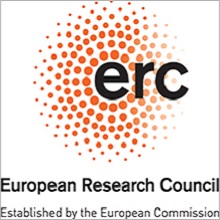

This project has received funding from the European Research Council (ERC) under the European Union’s Horizon 2020 research and innovation programme under grant agreement No 724544
Average-Transaction Costs and Risk Management during the First Globalization (Sixteenth-Eighteenth Centuries)
Online Database
Online Database
The AveTransRisk online database contains details for thousands of shipping voyages, allowing the user to search for many different categories (E.g. master; ships; ports; merchants; cargo). The data is linked so can be studied from multiple perspectives, allowing any part of the data to become the centre of the search.
Click here to go to the online database.
Digital Innovation Prize
The AveTransRisk Database has won (ex aequo) the Digital Innovation Prize which was awarded at the 2022 World Economic History Congress which took place in Paris at the end of July. the prize, organised and funded by the Association Française d’Histoire Économique (AFHE) under the patronage of the International Economic History Association, was set up to reward digital humanities projects in the field of economic history and promote ongoing and achieved projects involving new technologies in economic history.
The whole team thanks Antonio Iodice who prepared the material for the submission and successfully presented the Database in a special session during the 2022 WEHC.

Here follows the transcription of the motivation
The committee has awarded this prize ex aequo to this project because the committee recognizes the ambition of the project making complex premodern data about international trade available online, with all the information necessary for researchers to use them. The data was broken down into relevant categories. We can build queries easily and locate them on a map in a simple, efficient, and robust interface. In particular, lies the fact that the origin of the data was well documented, as the database could be downloaded freely with opened and wide range of analysis for research. The concern for cooperation and integration with other existing projects, like Navigo for example, was also a model for the sustainability of the project in a changing academic world.

